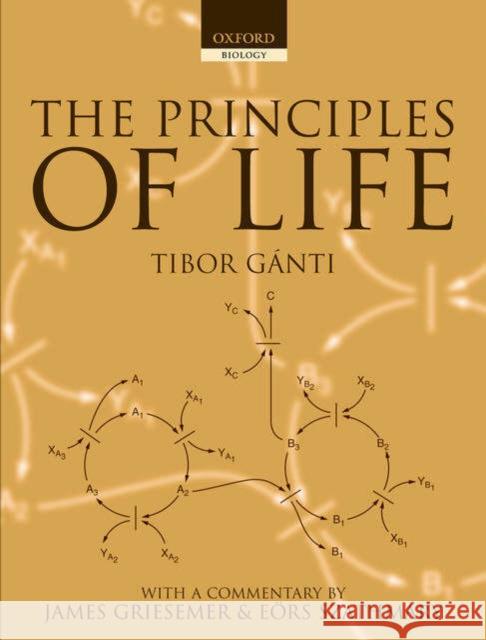The Principles of Life » książka
The Principles of Life
ISBN-13: 9780198507260 / Angielski / Twarda / 2003 / 224 str.
Beginning with a new essay, "Levels of Life and Death," Tibor Ganti develops three general arguments about the nature of life. In "The Nature of the Living State," Professor Ganti answers Francis Crick's puzzles about "life itself," offering a set of reflections on the parameters of the problems to be solved in origins of life research and, more broadly, in the search for principles governing the living state in general. "The Principle of Life" describes in accessible language Ganti's chief insight about the organization of living systems-his theory of the "chemoton," or chemical automaton. The simplest chemoton model of the living state consists of three chemically coupled subsystems: an autocatalytic metabolism, a genetic molecule and a membrane. Ganti offers a fresh approach to the ancient problem of "life criteria," articulating a basic philosophy of the units of life applicable to the deepest theoretical considerations of genetics, chemical synthesis, evolutionary biology and the requirements of an "exact theoretical biology." New essays by Eors Szathmary and James Griesemer on the biological and philosophical significance of Ganti's work of thirty years indicate not only the enduring theoretical significance, but also the continuing relevance and heuristic power of Ganti's insights. New endnotes by Szathmary and Griesemer bring this legacy into dialogue with current thought in biology and philosophy. Ganti's chemoton model reveals the fundamental importance of chemistry for biology and philosophy. Ganti's technical innovation - cycle stoichiometry - at once captures the fundamental fact that biological systems are organized in cycles and at the same time offers a way to understand what it is to think chemically. Perhaps most fundamentally, Ganti's chemoton model avoids dualistic thinking enforced by the dichotomies of modern biology: germ and soma, gene and character, genotype and phenotype.
"











